Under the majoritarian regime headed by Prime Minister Narendra Modi, there has been a growing trend of majoritarian interference in the media sector. The current regime is accused of using its power to silence critical voices and manipulate the media to promote its own agenda. This has led to a situation of fear among journalists, who are afraid to report on sensitive issues or speak out against this wave for fear of retaliation. As a result, the consolidation of media ownership in the hands of a few large corporations, which are seen as being close to the current regime.
In addition to this, there have been instances of journalists being arrested or harassed for reporting on sensitive issues. The figures of the National Crime Records Bureau (NCRB) for 2019 show that the number of people arrested under the UAPA has seen an increase of over 72% from 2015. The increasing number of arrests under the UAPA and the targeting of journalists by the majoritarian regime are alarming signs for press freedom in India. According to the crime records data, 6,900 UAPA cases were reported between 2014 and 2020. Year 2019 saw the highest number of cases – 1,226 – followed by 2018 (1,182 cases). This number dropped by 35 per cent to 796 in 2020. The number of cases that are waiting to be investigated is increasing by an average of 14.38 percent every year.
The Committee to Protect Journalists (CPJ) report highlights the high rate of journalists being jailed, and the recent attacks on press freedom in March 2023 only add to the concern. The sufferings of journalists in Jammu and Kashmir, as described by Anuradha Bhasin, further emphasize the muzzling of free speech in India. It is crucial for the government to respect press freedom and ensure the safety and security of journalists. The government has also been accused of using its power to block access to websites and social media platforms that are critical of its policies. The fact that the former CEO of Twitter, Jack Dorsey, has come forward to reveal the pressure exerted on the platform by the Indian government is a wake-up call for all of us to defend our democratic values and freedoms.
The article titled “Centre rubbishes Twitter Ex-CEO Jack Dorsey’s ‘govt pressure’ charge” reported here highlights the government’s denial of exerting pressure on Twitter, as claimed by former CEO Jack Dorsey. The Indian government told Twitter to black out farmers’ protests tweets by journalists critical of the current regime. Threatened to shut Twitter down in India and raid the homes of Twitter employees, which they did. This is how the BJP is using Social Media for their propaganda, the situation of Facebook and Instagram are worse, Jack Dorsey, former CEO of Twitter said in a statement. All these developments have raised concerns about the state of press freedom in India.
Raids to Silence Critics
On February 14, Indian tax officials and police raided the offices of the BBC in the National Capital and Mumbai. The majoritarian regime said the raid was conducted because the BBC had failed to respond to requests regarding their tax affairs related to its Indian operations. The channel has asserted that it is cooperating with the tax department and hopes to fix the matter in an appropriate manner. The raid comes three weeks after the BBC released a documentary examining Prime Minister Narendra Modi’s role in sectarian riots in Gujarat in 2002.
The documentary indicates that Modi is fostering a climate of impunity that fueled the violence. However, The ruling party has criticized the documentary as biased and reflective of a colonial mindset. In January, Indian authorities ordered the removal of social media posts sharing the documentary and detained some Indian students who tried to screen it, claiming it would disturb the peace. The Editors Guild of India, a prominent industry association, has expressed concern over the recent raids conducted by the government on the BBC’s offices in India. According to the guild, these raids are part of a growing trend of using government agencies to intimidate and harass news organizations.
The guild pointed out that this is not an isolated incident, citing four similar tax inspections against media outlets in 2021. One such instance occurred in July, when tax authorities raided the offices of Dainik Bhaskar, one of India’s largest newspapers in terms of circulation. The authorities alleged that the newspaper had evaded taxes on income amounting to 7 billion Indian rupees ($84.47 million). However, Dainik Bhaskar has contested the charge, and the case is currently ongoing.
These incidents raise concerns about the freedom of the press in India and the potential misuse of government agencies to target and suppress media organizations. The Editors Guild of India has called for a fair and transparent investigation into these cases to ensure the protection of journalistic independence and freedom of expression. The raids conducted by the Income Tax department at the office of Lucknow-based Bharat Samachar last year are similar to the recent raids.
The guild stated that Bharat Samachar is one of the few channels in Uttar Pradesh that has been posing tough questions to the state government regarding its handling of the pandemic. The EGI expressed concern over the timing of these raids, considering the recent critical coverage by both Bharat Samachar and the other organization. Despite the merits of the case, the timing raises suspicions. The raid conducted by the Enforcement Directorate at the residence of journalists and officials working for News click, an independent media house in Delhi, has raised concerns about the government’s use of government-controlled agencies to target dissenting voices.
According to media reports, the ED officials claimed that they were conducting a routine check and alleged that News Click was involved in a money laundering case related to foreign funding from dubious companies abroad. However, many view this as an attempt to suppress criticism and dissent against the government. This raises questions about the government’s commitment to freedom of the press and the right to dissent. Critics argue that such actions undermine the independence of the media and create a chilling effect on journalists and media organizations, discouraging them from reporting on issues that may be critical of the government.
The use of government-controlled agencies in this manner raises concerns about the erosion of democratic values and the stifling of dissent in the country. It is important for a vibrant democracy to have a free and independent media that can hold the government accountable and provide a platform for diverse voices and opinions. The government should be open to criticism and engage in constructive dialogue rather than resorting to tactics that suppress dissent. Many believe that the media is no longer able to act as a watchdog and hold those in power accountable. This is a worrying trend for a country that prides itself on being the world’s largest democracy. This has led to a situation where the media is largely controlled by the government and is hesitant to report on issues that may reflect poorly on the ruling party.
Journalists who are critical of the government or report on sensitive issues are often targeted with legal action or physical violence. The government has also used its power to regulate the media to its advantage. In 2018, the Ministry of I&B issued guidelines that allowed it to suspend the accreditation of journalists who were found to be spreading “fake news.” The guidelines were widely criticized for being vague and giving the government too much power to determine what constituted “fake news.” The government has also used its control over the media to shape public opinion. For instance, during the 2019 general election, the BJP was able to use its influence over the media to promote its message and attack its opponents. This helped the party win a landslide victory.
Decoding ‘Godi Media’
Godi Media is a term coined by critics of the Indian media industry to describe news channels that are accused of being biased towards the ruling Bharatiya Janata Party (BJP) and its government. The term “Godi” in Hindi means “lap”, suggesting that these media outlets are seen as being in the lap of the ruling party. Critics argue that Godi Media only presents a positive image of the government and avoids covering any negative or critical stories. They accuse these channels of spreading propaganda, spreading misinformation, and promoting a divisive narrative.
They claim that rather than acting as independent news sources, these channels function as mouthpieces for the government’s agenda. However, The concept of Godi Media highlights concerns about the lack of media independence and impartiality in India. It reflects a growing sentiment that some news channels prioritize their allegiance to the ruling party over journalistic integrity and the public interest. It is important to note that the term itself is subjective and has been used by critics of the government. Notably, It is not a universally accepted term and may be seen as a form of political rhetoric by some.
The term “Godi Media” has gained popularity in India as a way to criticize news channels that are perceived to be biased in favor of the BJP and the Narendra Modi government. It was coined by former journalist of NDTV Ravish Kumar, who accuses these channels of promoting the government’s agenda and not holding them accountable. Critics claim that these channels downplay critical issues and dissenting voices, focusing primarily on promoting the government’s narrative.
Furthermore, these channels and presenters are often accused of lacking journalistic integrity. They are said to rely on unverified information, spread misinformation, and engage in personal attacks against individuals who hold opposing viewpoints. Critics argue that this behavior undermines the principles of balanced and unbiased journalism. Another aspect of the accusation is the promotion of government propaganda. These channels and presenters are seen as actively promoting the ruling party’s ideology and policies without critically analyzing their impact or considering alternative perspectives.
Despite all of this, On the World Press Freedom Day (3rd May), the World Press Freedom Index 2023 was published by Reporters Without Borders (RSF). Following this report, the country ranked 161st among the 180 countries with a score of 36.62. In 2022, India’s rank was 150. This indicates a decline in India’s press freedom ranking compared to the previous year. The World Press Freedom Index measures the level of freedom available to journalists and media organizations in each country. A lower ranking suggests greater restrictions and challenges faced by the press in that country.
Consequently, Modi’s rise to power has led to a significant shift in the Indian media and Social Media or New Media landscape. While there are still independent media outlets that are critical of the government, they are increasingly marginalized and face pressure to conform to the government’s narrative. This has raised concerns about the state of press freedom in India and the ability of the media to hold those in power accountable. India’s drop in ranking may be attributed to various factors, including increasing government control and censorship of the media, attacks on journalists, and the use of legal measures to suppress critical reporting. These factors can have a detrimental impact on the ability of journalists to report freely and independently, thus limiting the public’s access to reliable information.
(Author: Trilok Singh, Pursuing Ph.D. in Journalism and Mass Communication from K.R. Mangalam University. Masters in Journalism and Mass Communication from Galgotias University. Masters in Political Science from Kirori Mal College, University of Delhi. Founder and CEO at Post A2Z, Youth Darpan Media, Micro BlogIN and IASmind.com).









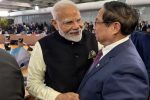
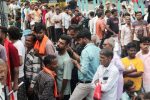

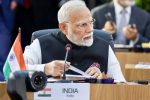




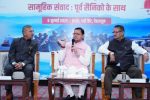



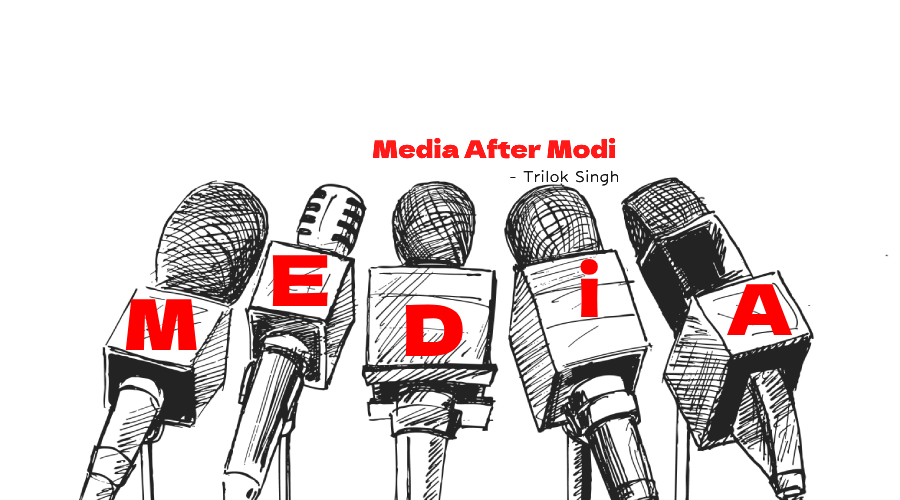
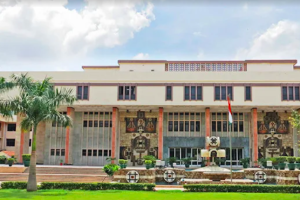
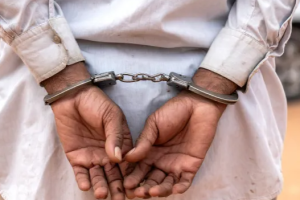
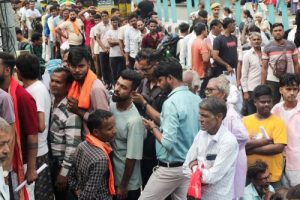
Add Comment